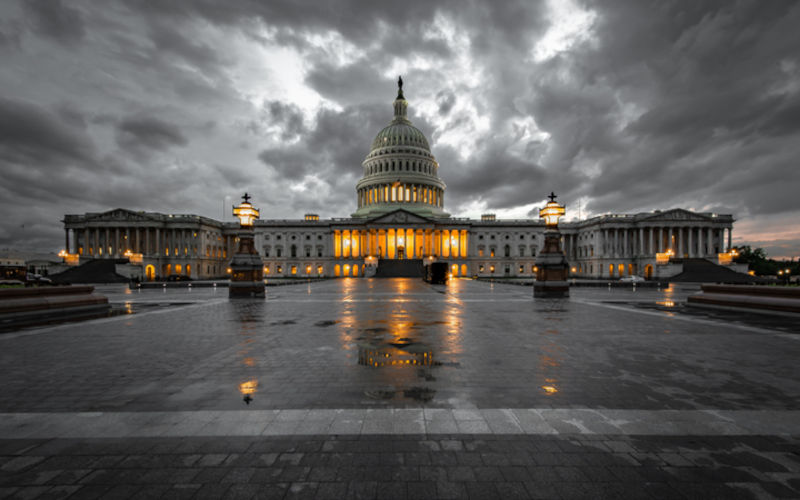A divided US needs an enemy like Beijing more than it ever did
October 4, 2023
When something becomes too complicated, psychologists say we go for rules of thumb. In Washington today, that rule is the China threat.
Americas political elite are worried that domestic polarisation is undermining its ability to counter an existential threat like China, or as they prefer to call it nowadays, the Chinese Communist Party. They neednt worry; they have got things cause and effect reversed.
By contrast, Beijing has steadfastly refused to publicly label the United States as a mortal threat, an enemy or a pacing challenge, even though it clearly is; there lies their fundamental political difference.
The more fractured American body politic becomes, the more it needs an enemy like China. The more stable and shared its political-social norms were now a distant memory unlikely to return the less America had needs for a common threat. Thats why a polarised US on the verge of civil war will be more dangerous to the world than ever. Its analogous to the last financial meltdown in the US, beginning with its real estate market collapse, which led to the global financial crisis.
Its perhaps not by accident that two current articles in Foreign Policy and Foreign Affairs both address the same topic. Writing in Foreign Affairs, former secretary of defence Robert Gates argues that paralysis and infighting in Washington could not have come at a worse time.
As examples, he cites the just avoided government shutdown, a partisan impeachment inquiry against Joe Biden, and multiple felony charges across four criminal cases against Donald Trump, whose presidential election campaign will likely further fracture US politics. There are longer-term problems he didnt mention: race relations, gun violence, the migration crisis, the fentanyl and other drugs crises, the rise of the basically fascist alt-right.
Arguing in a similar vein in Foreign Policy, Raja Krishnamoorthi wrote that the US cannot afford to lose a soft-power race with China. Krishnamoorthi is a Democratic congressman and ranking member of the House Select Committee on the Strategic Competition Between the United States and the Chinese Communist Party.
Note the committees ridiculously provocative title. These days, you dont say China in Washington; always say the CCP. Watch the congressional hearing from last week on Chinas bullying with laser guns and water cannons in the South China Sea; there was barely a sentence uttered without mentioning the CCP.
The state of the American Union is not well.
The more divided, confused and insecure people feel, the more having a common powerful enemy helps. Paradoxically, people retain a greater sense of certainty and control that way. That has been borne out by recent studies in social and political psychology.
By bombarding people with constantly threatening news about a powerful enemy such as al-Qaeda and now China, peoples sense of control is actually boosted as they think they understand the world around them.
The danger of misperception is obvious.
Its hard for people to admit bad things happen for reasons too complicated to understand without serious study; far better is to train the public to blame it all on easy targets, whether they are Muslim extremists, Mexican cartels or Chinese communists. Also, psychologists have confirmed what we all know from primary school: people are more likely to bond over a shared dislike than a common fondness of a third party. Denigrating or demonising an enemy can boost self-esteem, and a sense of common mission, by exaggerating your groups goodness and virtue, or in America, freedom and democracy!
Meanwhile, the friend vs foe distinction is as old as Plato and Sun Tzu. When you have many formal allies, you must have many formal enemies to match. China has few formal allies and therefore prefers to have no formal enemies.
The opportunities and challenges presented by China are so multifaceted and complex they are well beyond the intellectually challenged state of US politics to handle. When things get too complicated, psychologists say we go for rules of thumb. Sadly in Washington today, that rule of thumb is the China threat.
First published in the South China Morning Post October 1, 2023
For more on this topic, P&I recommends:
https://publish.pearlsandirritations.com/why-china-is-not-a-threat-sinophobia-unites-americans/

